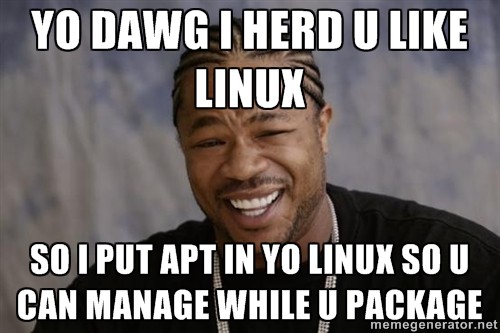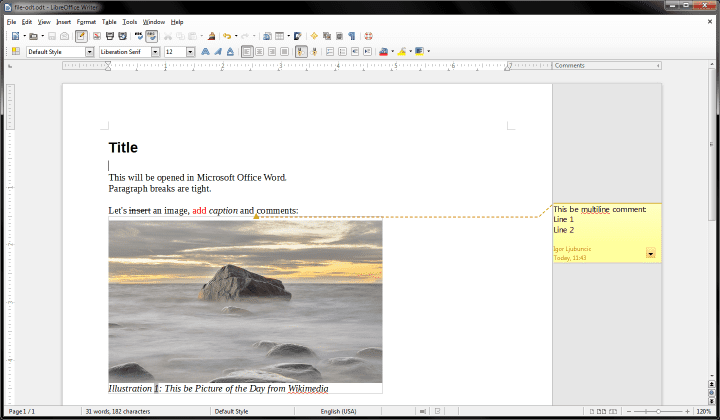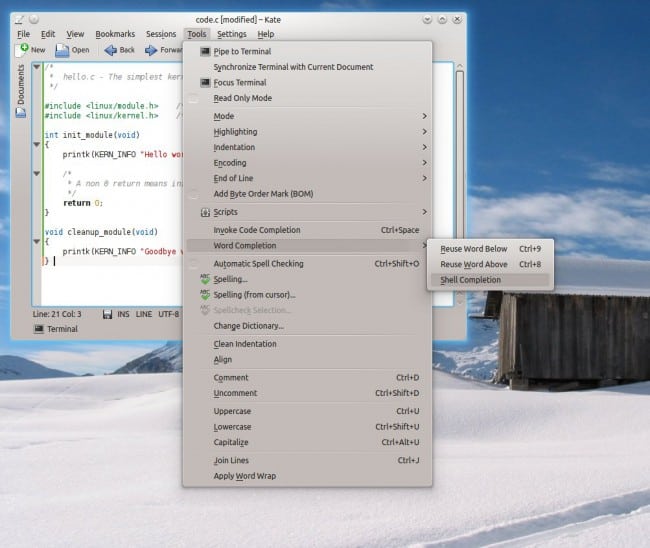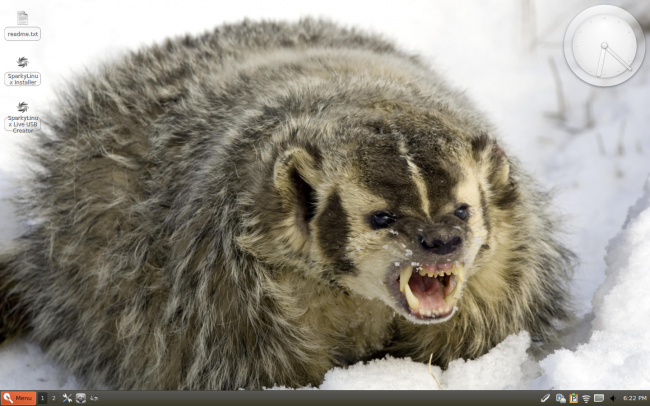How light is Netrunner?
March 29th, 2014 by Luis Augusto Fretes Cuevas
Minimum and usable requirements are not synonyms. Recommended specifications should not be confused with usability requirements, recommended specs are are more demanding (they represent the ideal set of components). A usability requirement is the condition in which the system not only installs and more or less works, but can also be used reasonably by other human beings. According to the official documentation, the minimum requirements to run Netrunner 13.12 are: CPU 1.6-GHz Intel Atom N270 RAM 1GB Hard Drive Size 10GB Graphics Card Intel GMA 945 Video Memory 128MB I decided to put this to test. The machine I used is… Continue Reading
Manage my package
March 28th, 2014 by Dedoimedo
Yo dawg, I herd u like Linux, so I put APT in yo Linux so u can manage while u package. That’s the gist of it. And now in human-readable text. Yes. Today, we will talk about Linux package managers, the neat software that lets you search, install and remove programs, tools, utilities, fonts, and whatnot in your Linux distribution. Now, we will not be talking about the low-level stuff, like DEB and RPM. We will focus higher up. First, I am going to present a handful of command line tools, with a bunch of pros and cons and options… Continue Reading
Linux gaming: Papers, please
March 20th, 2014 by Luis Augusto Fretes Cuevas
Thanks to the release of Steam for Linux and the announcement of Steam OS, the number of games available for Linux have been going up systematically. Valve is also preaching by example and porting many of their games to Linux, perhaps the most exciting of all is Portal 2. One of the best games ever made. Netrunner comes with Steam ready to install so, if you’re curious, the growing world of Linux gaming is only a couple of clicks away. One of the characteristics of the modern gaming industry is big studios mostly redo the same games over and over… Continue Reading
LibreOffice vs. Microsoft Office, Part Deux
March 14th, 2014 by Dedoimedo
I would like to apologize in advance. This article is going to feature screenshots taken on a Windows 7 machine only, which might strike you as odd, given the fact this is a Linux-related topic we are discussing here. But it is exactly why we will use Windows. Nothing like pitch black to demonstrate pure white. Or the other way around. Indeed, LibreOffice 4.2 has been officially released, and it’s a major one. This latest edition of the most popular free, open-source office suite comes with a range of new options, tons of speed improvements, a variety of fixes, and… Continue Reading
Review: Geary
February 28th, 2014 by Luis Augusto Fretes Cuevas
The most famous e-mail client for Linux is probably Thunderbird, a powerful customizable client with support for numerous extensions. Geary is the new kid on the block, written entirely using Vala, instead of a power user heaven it attempts to be as simple as possible. Following GNOME’s philosophy. Why would anyone choose Geary over Thunderbird? Some may think the only good reason would be if you happen to appreciate really lightweight and minimalistic applications. There’s more to it than that. Easy to setup Setting up a Geary is as simple as it can possibly get. If you entered your name… Continue Reading
RetroArch and libretro
February 20th, 2014 by Luis Augusto Fretes Cuevas
A couple of weeks ago we checked some of Linux best emulators for the so called old-school gamers or retrogamers. The article was partially motivated by the hype produced by OpenEmu, which is a pretty open source front-end for a variety of emulators for Mac OS X (but is functionally limited in some ways). Is there something like OpenEmu for Linux? Kinda. While not as pretty there’s a very good multi-emulator front-end. Libretro Libretro is an opensource API to which any emulator (called “cores”) can plug into. Then front-ends can plug to libretro and access all the different cores available…. Continue Reading
War! Best text editor of them all.
February 17th, 2014 by Dedoimedo
Text is the bread and bacon of pretty much every digital creation. Games, software or just pure prose, they all start as innocent words, text, written onto a blank canvas of pixels. Whether you’re talking about your website, your summer project or maybe notes, you should keep a text editor handy. Which one? Well, let’s have a little competition. Or at least, an all-out melee. The only war more fierce, more longer lasting than the famous Thirty Years’ War is the war of the Linux text editor, famously started back in the golden days of vi and emacs. But it… Continue Reading
Razor-qt review
February 7th, 2014 by Dedoimedo
A few days back, we reminisced on how KDE changed from version 3.5 into version 4.0, and, in that a great social split was created in the Linux community. The Trinity Desktop Environment project was created to address the gap, and a new desktop was born. Sort of like MATE. Today, we will talk about Razor-qt, a desktop born with a different mission statement. It does not come to satisfy our emotional needs; instead, it is supposed to be fast and light, while being based on the Qt technologies. In a sense, this makes Razor-qt somewhat similar to LXDE. Once… Continue Reading








